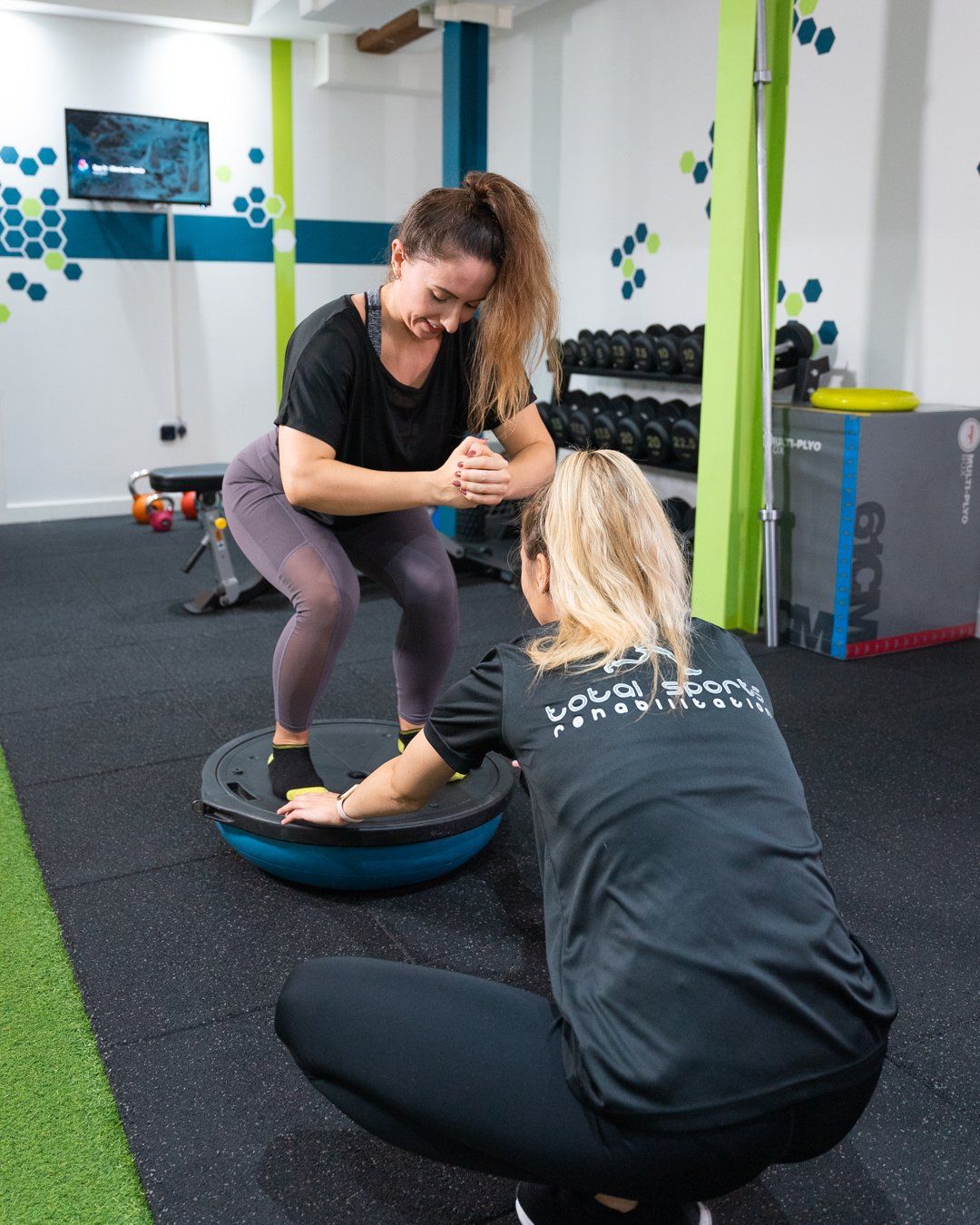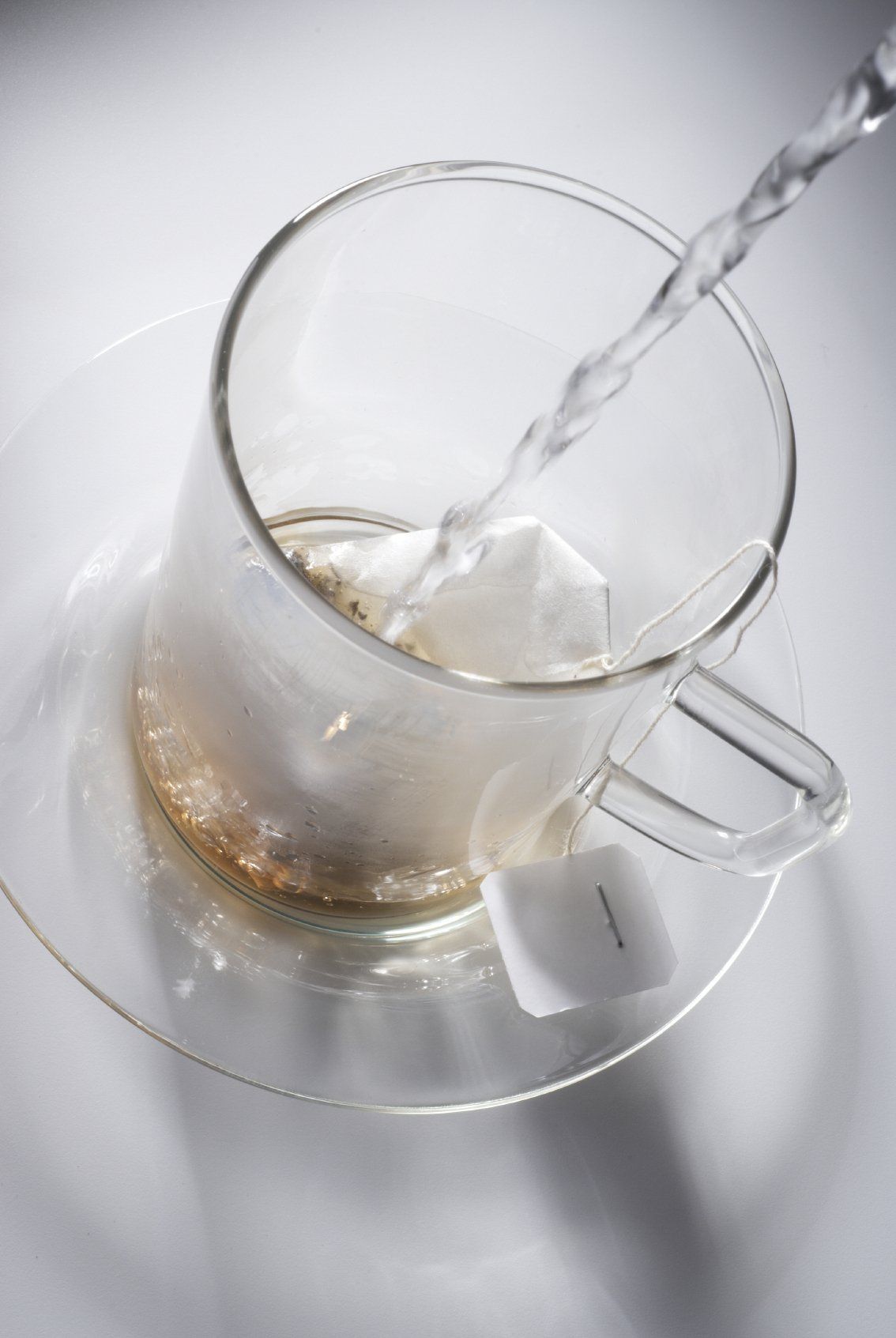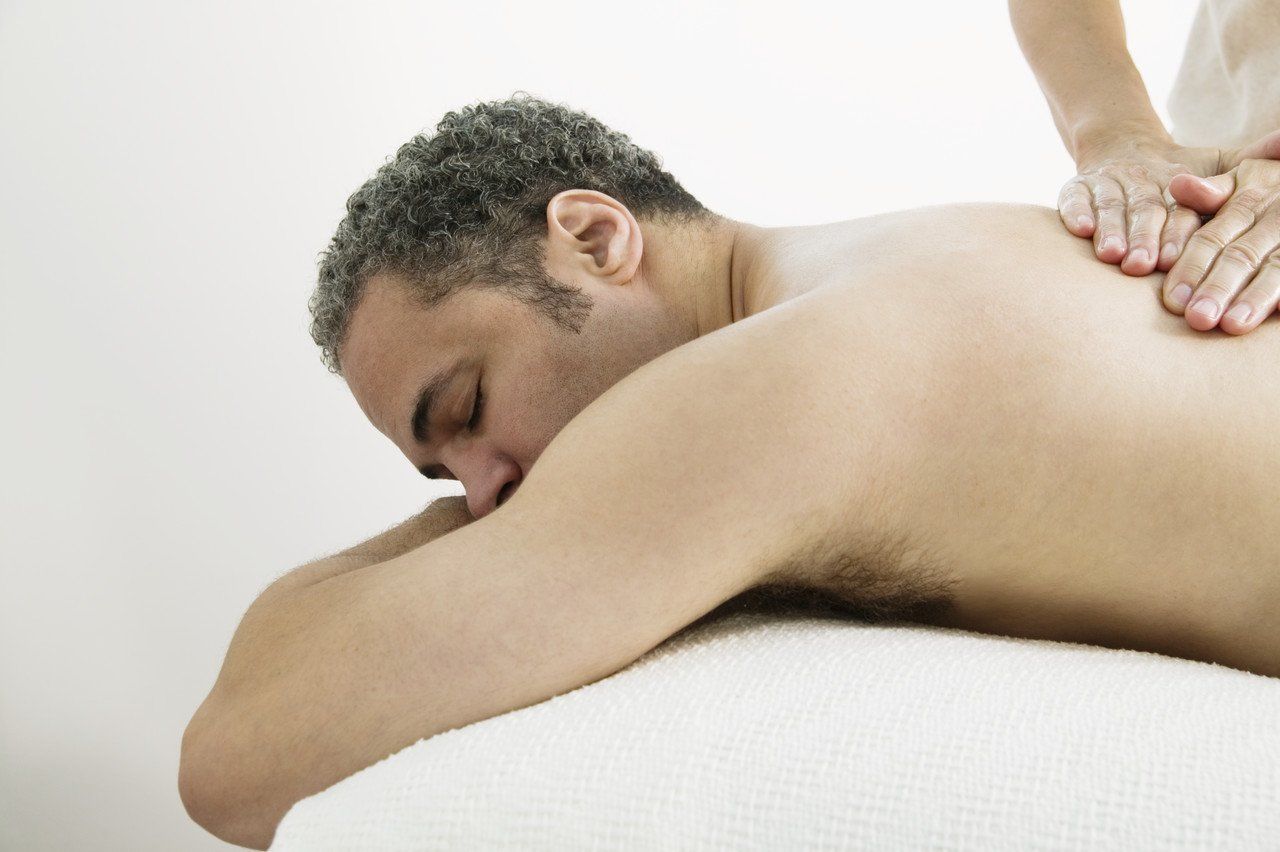Revealing the Alarming Statistics: MSK Injuries in UK Office Workers Due to Desk Work and the Therapeutic Power of Sports Massage
Matthew Leah • 20 June 2023
As the digital age continues to shape our professional landscape, the prevalence of desk work among office workers in the UK has skyrocketed. Unfortunately, this sedentary lifestyle comes at a cost—musculoskeletal (MSK) injuries have become a growing concern. In this blog post, we explore the statistics surrounding MSK injuries in UK office workers caused by desk work and shed light on the benefits of regular sports massage as a powerful aid in recovery. Brace yourself for an enlightening journey into the world of workplace well-being.
The Prevalence of MSK Injuries
Musculoskeletal injuries, also known as work-related upper limb disorders (WRULDs), have become a significant issue among office workers. According to the Health and Safety Executive (HSE) in the UK, nearly 50% of all work-related illnesses can be attributed to MSK disorders. These statistics emphasise the urgent need for awareness and preventive measures to address the health concerns faced by desk-bound employees.
The Impact of Desk Work on MSK Health
Extended periods of desk work can result in various MSK injuries, including neck and shoulder pain, lower back pain, wrist and hand discomfort, and eye strain. The sedentary nature of office work, combined with poor posture, repetitive movements, and inadequate ergonomics, contributes to the development and aggravation of these conditions.
Recognising the Benefits of Sports Massage
Regular sports massage offers a multifaceted approach to aid in the recovery and prevention of MSK injuries in office workers. Here are some notable benefits:
Improved circulation and tissue health: Sports massage techniques, such as deep tissue massage and effleurage, help increase blood flow to the affected areas, promoting the delivery of oxygen and nutrients while removing metabolic waste products. This enhanced circulation aids in the healing process and reduces inflammation.
Enhanced muscle flexibility and range of motion: Prolonged desk work can lead to muscle imbalances and tightness. Sports massage targets specific muscle groups, releasing tension, improving flexibility, and restoring a wider range of motion. This can alleviate pain and discomfort associated with MSK injuries.
Stress and tension reduction: The pressures of office work can take a toll on both physical and mental well-being. Sports massage provides a calming effect, reducing stress levels and releasing endorphins, the body's natural "feel-good" chemicals. This relaxation response can help prevent further exacerbation of MSK injuries caused by stress and tension.
Postural realignment: Sports massage therapists can identify and address postural imbalances caused by desk work. By targeting specific muscle groups and addressing compensatory patterns, sports massage can contribute to postural realignment, reducing the risk of further injury.
Injury prevention: Regular sports massage can be a proactive measure to prevent MSK injuries. By maintaining optimal muscle health, flexibility, and circulation, office workers can reduce the likelihood of developing chronic conditions associated with desk work.
The statistics surrounding MSK injuries among UK office workers due to desk work underscore the need for proactive measures to promote well-being in the workplace. Alongside ergonomic adjustments and movement breaks, incorporating regular sports massage into your routine can offer significant benefits. By improving circulation, enhancing muscle flexibility, reducing stress, and aiding in postural realignment, sports massage becomes a powerful tool in the recovery and prevention of MSK injuries. Embrace this therapeutic practice and prioritise your musculoskeletal health—it's a worthy investment in your overall well-being and productivity.

The jaw is a remarkable joint that allows us to perform essential functions like speaking, eating, and expressing emotions. However, many people experience jaw pain or cracking at some point in their lives, often without understanding why. In this blog post, we'll delve into the reasons behind jaw pain and cracking, exploring common causes, potential solutions, and ways to maintain good oral health. Temporomandibular Joint (TMJ) Disorder One of the most common culprits behind jaw pain and cracking is temporomandibular joint disorder, often referred to as TMJ or TMD. This condition affects the TMJ, the joint that connects the jawbone to the skull. TMJ disorder can result from a variety of factors, including: Jaw injury or trauma Teeth grinding (bruxism) Arthritis Misaligned jaw or teeth Stress, which can lead to clenching the jaw muscles Symptoms of TMJ disorder can include pain, clicking or popping sounds when moving the jaw, difficulty opening or closing the mouth, and facial discomfort. Treatment may involve lifestyle changes, dental appliances, physical therapy, or, in severe cases, surgery. Teeth Grinding (Bruxism) Teeth grinding, or bruxism, is a common cause of jaw pain and cracking. This condition often occurs during sleep and can be related to stress or misaligned teeth. Grinding your teeth exerts excessive pressure on the TMJ and surrounding muscles, leading to pain and potential joint issues. To address bruxism, dentists may recommend wearing a mouthguard at night to protect the teeth and alleviate pressure on the jaw. Arthritis Arthritis, specifically osteoarthritis and rheumatoid arthritis, can affect the TMJ, leading to pain, stiffness, and cracking in the jaw joint. While there is no cure for arthritis, pain management, physical therapy, and lifestyle modifications can help manage symptoms. Poor Oral Habits Certain oral habits can contribute to jaw pain and cracking. For instance, constantly chewing gum, biting on hard objects, or holding your phone between your ear and shoulder can strain the jaw joint and its surrounding muscles. Being mindful of these habits and making changes can reduce the risk of developing jaw-related problems. Stress and Anxiety Stress and anxiety can lead to clenching or grinding of the teeth, a condition known as bruxism, which can result in jaw pain and discomfort. Managing stress through relaxation techniques, exercise, or counselling can help alleviate this issue. Malocclusion Malocclusion refers to a misalignment of the teeth, where the upper and lower teeth do not fit together correctly. This misalignment can put added strain on the jaw joint, leading to pain and discomfort. Orthodontic treatments like braces or dental appliances may be necessary to correct malocclusion. Jaw pain and cracking can have various causes, but it's important not to ignore the symptoms. Seeking professional guidance from a dentist or oral specialist is essential for a proper diagnosis and treatment plan. Whether the issue stems from TMJ disorder, bruxism, arthritis, poor oral habits, stress, or malocclusion, there are solutions available to help alleviate pain and improve your oral health. With proper care and treatment, you can restore comfort and function to your jaw, allowing you to enjoy life without the discomfort and limitations that jaw issues can bring.

Squats are often hailed as the king of compound exercises, and for good reason. They engage multiple muscle groups and provide a plethora of benefits, making them an essential addition to any well-rounded workout routine. In this blog post, we'll explore the most beneficial way to incorporate squats into your exercise regimen to help you build strength, enhance your overall fitness, and achieve your fitness goals. Master the Basics Before diving into the various squat variations, it's essential to master the basic squat form. The fundamental elements of a proper squat include: Stand with your feet shoulder-width apart. Keep your chest up and your back straight. Lower your body by bending at the hips and knees. Push your hips back and ensure your knees don't go past your toes. Keep your core engaged and your weight balanced on your heels. Descend until your thighs are parallel to the ground, or as far as your flexibility allows. Push through your heels to return to the starting position. Once you've perfected your squat form, you can progress to more advanced variations. Incorporate Squats into Your Routine Now, let's explore how to effectively incorporate squats into your exercise routine: a. Full-Body Workouts: Squats are a fantastic addition to full-body workout routines. Begin your session with squats to engage major muscle groups like the quads, hamstrings, glutes, lower back, and core. This full-body engagement can help improve overall strength and endurance. b. Leg Day: If you prefer a split routine, dedicate a day to leg-focused exercises. Squats are the cornerstone of leg workouts and can be complemented with lunges, leg presses, and other lower body exercises. c. Supersets: To maximise the benefits of squats, incorporate them into supersets with other exercises. Pair squats with upper body exercises like bench presses, rows, or pull-ups for a more efficient workout. Explore Squat Variations Squats come in various forms, each targeting specific muscle groups and offering unique benefits. Some popular squat variations include: a. Goblet Squats: Holding a dumbbell or kettlebell close to your chest, goblet squats emphasize core engagement and balance. b. Front Squats: Front squats place the barbell on the front of your shoulders, focusing on the quadriceps and core. c. Sumo Squats: With a wide stance and toes pointing outward, sumo squats work the inner thighs and glutes. d. Bulgarian Split Squats: Elevating one foot behind you on a bench or platform, this single-leg variation is excellent for building strength and balance. e. Overhead Squats: Holding a barbell overhead, overhead squats engage the core, shoulders, and lower body. Progressive Overload To continuously challenge your muscles and see improvements in strength and muscle growth, it's essential to practice progressive overload. This means gradually increasing the weight, sets, or reps over time. This can be achieved by adding more weight to the bar, increasing the depth of your squat, or doing more sets and reps. Proper Recovery To maximise the benefits of squats and prevent injury, prioritise proper recovery. Incorporate rest days into your routine, practice stretching and mobility exercises, and consider regular foam rolling to reduce muscle tightness. Squats are a versatile and effective exercise that can transform your fitness routine. By mastering proper form, incorporating squats into your workouts, exploring different squat variations, focusing on progressive overload, and prioritising recovery, you can unlock the numerous benefits of this powerful compound exercise. Whether your goal is to build strength, improve athletic performance, or enhance your overall fitness, squats are an invaluable addition to your fitness arsenal. So, lace up your training shoes, grab that barbell, and squat your way to a stronger and healthier you.

In today's hyper-connected world, smartphones have become an integral part of our daily lives. We rely on them for communication, information, entertainment, and much more. However, spending too much time on our phones can have unintended consequences on our physical health. In this blog post, we'll delve into why excessive phone use can lead to neck problems and offer practical tips to prevent these issues. The Posture Predicament One of the primary culprits behind neck problems associated with excessive phone use is poor posture. When we spend long hours hunched over our screens, whether texting, browsing social media, or playing games, we tend to: Develop "Text Neck": The act of tilting our heads forward to look at our phones can lead to a condition often referred to as "text neck." This posture places additional stress on the neck and spine, potentially causing discomfort and pain. Overload the Neck Muscles: Sustaining this unnatural position for extended periods can strain the muscles supporting the neck and upper back, leading to fatigue and potential injury. Increase Pressure on the Spine: Poor posture can increase the pressure on the spine and discs, potentially leading to degenerative changes over time. Preventing Neck Problems To prevent or alleviate neck problems resulting from excessive phone use, consider implementing the following strategies: Maintain Good Posture: Keep your head and neck in a neutral position. Your ears should align with your shoulders, whether you're sitting or standing. Try to bring your phone to eye level rather than bending your neck to look down. Take Breaks: Avoid prolonged phone use. Take short breaks to stretch your neck, shoulders, and upper back. Simple exercises like gently rolling your shoulders or tilting your head from side to side can help alleviate tension. Use Voice Recognition: Whenever possible, utilize voice recognition technology to dictate texts or commands, minimizing the need for prolonged typing or tapping on your device. Adjust Screen Brightness: Ensure your screen brightness is appropriate for the environment to prevent unnecessary straining as you squint to read text on a dimly lit or overly bright screen. Ergonomic Accessories: Consider using ergonomic accessories like phone stands, holders, or specialized phone pillows to help maintain a comfortable viewing angle. Limit Screen Time: Set daily limits for your phone usage, and be mindful of the time you spend scrolling through social media or playing games. Reducing screen time can have a significant impact on your overall well-being. Strengthen Neck Muscles: Incorporate exercises that strengthen your neck and upper back muscles. This can help counteract the strain caused by excessive phone use. Regular Neck Checkups: If you experience persistent neck discomfort or pain, consult a a team member at TSR. We can provide guidance, offer pain relief solutions, and help rule out any serious conditions. While smartphones have revolutionised the way we communicate and access information, it's crucial to be mindful of the potential physical consequences of excessive phone use. Neck problems resulting from poor posture and prolonged screen time are becoming increasingly common. By adopting good habits and making conscious efforts to protect your neck and spine, you can enjoy the benefits of your phone while safeguarding your long-term physical health. Remember that moderation and mindfulness are key to striking a balance between your digital life and your well-being.

The way you kick-start your day can set the tone for the hours that follow. Many of us reach for a cup of coffee or tea to jumpstart our morning routines, but there's more to consider when it comes to choosing the best drink to consume first thing in the morning. In this blog post, we'll explore some fantastic options that can help you feel refreshed, energized, and ready to conquer the day ahead. Water: The Ultimate Morning Elixir Before we dive into other morning beverage options, let's begin with the most fundamental choice: water. After a night's sleep, your body is mildly dehydrated, making water the perfect drink to replenish your system. Drinking a glass of water as soon as you wake up can: Rehydrate your body. Kickstart your metabolism. Aid in the removal of toxins. Promote better digestion. Lemon Water: A Zesty Morning Boost If you want to take your morning hydration up a notch, consider adding a squeeze of fresh lemon juice to your water. Lemon water offers a variety of benefits: Alkalises your body: Lemons are acidic in nature, but they have an alkalizing effect on your body, which may help balance your pH levels. Boosts digestion: The acidity of lemons can stimulate stomach acid production and enhance digestive processes. Vitamin C boost: Lemons are rich in vitamin C, which supports your immune system and overall health. Refreshing taste: The zesty flavor of lemon water can be invigorating and help wake you up. Green Tea: A Healthy Morning Ritual Green tea is a popular morning choice for those looking to cut down on caffeine or simply enjoy a soothing, antioxidant-rich beverage. Here are some reasons why green tea is an excellent option: Antioxidants: Green tea is packed with antioxidants, which can help combat free radicals and reduce the risk of chronic diseases. Caffeine with a twist: Green tea contains less caffeine than coffee, providing a mild energy boost without the jitters. Metabolism support: Some studies suggest that the compounds in green tea may assist in weight management. Mental clarity: The combination of caffeine and L-theanine in green tea can enhance focus and concentration. Herbal Teas: Aromatic and Relaxing Herbal teas come in a wide variety of flavours and benefits, making them a versatile choice for the morning. Popular options include chamomile, peppermint, ginger, and hibiscus. Each herbal tea offers unique advantages: Chamomile: Known for its calming properties, chamomile tea can help reduce morning stress and promote relaxation. Peppermint: Peppermint tea is refreshing and can aid digestion, making it an excellent choice for those with sensitive stomachs. Ginger: Ginger tea is warming and can help soothe nausea and digestive discomfort. Hibiscus: Hibiscus tea is packed with antioxidants and has a pleasant, tart flavor that can be energizing. Smoothies: A Nutrient-Packed Morning Meal For those who prefer a more substantial morning beverage, a healthy smoothie can be a fantastic option. You can blend fruits, vegetables, protein, and other nutritional add-ins to create a well-rounded and satisfying drink. The best drink to consume first thing in the morning ultimately depends on your preferences, health goals, and dietary restrictions. Whether you opt for a glass of water, a zesty lemon water, a soothing cup of green tea, a fragrant herbal infusion, or a nutritious morning smoothie, the key is to choose a beverage that energises you and sets a positive tone for the day. Experiment with different options to find what works best for you, and remember that staying hydrated is the foundation of a great morning routine. Cheers to a refreshing and revitalising start to your day!

Pillows play a crucial role in the quality of your sleep. They provide support, comfort, and help maintain proper alignment while you rest. However, the ideal number of pillows to use during sleep can vary from person to person. In this blog post, we'll explore the factors to consider when determining how many pillows you should use to ensure a good night's sleep. Sleep Position Matters The number of pillows you need can be influenced by your preferred sleep position: a. Back Sleepers : Back sleepers often find one pillow to be sufficient. It should be thick enough to support the natural curve of your neck while keeping your head in a neutral position. b. Side Sleepers : Side sleepers may benefit from two pillows. The bottom pillow should support your head and neck, while the top one can be placed between your knees to align your hips and reduce pressure on your lower back. c. Stomach Sleepers : Stomach sleeping is generally discouraged due to its potential to strain the neck and lower back. If you must sleep on your stomach, consider using a very thin pillow, or none at all, to reduce strain on your neck. Personal Comfort Comfort is highly subjective. Some people like a minimalist approach with just one pillow, while others prefer the extra cushioning and support of multiple pillows. Your personal comfort should always be a top priority when determining the ideal number of pillows. Health Conditions Certain health conditions may influence your pillow choice: a. Acid Reflux : If you suffer from acid reflux, elevating your upper body with an extra pillow or a wedge pillow can help prevent stomach acid from flowing back into your oesophagus. b. Allergies : If you have allergies, using pillow protectors can help keep allergens at bay. You might also consider adding a second pillowcase. c. Sleep Apnea : Individuals with sleep apnea might benefit from a specially designed pillow that promotes proper head and neck alignment, making it easier to breathe during the night. Pillow Types The type of pillow you use can also affect the number you need: a. Feather and Down Pillows : These pillows are soft and compressible, so you might need more than one to achieve the desired level of support. b. Memory Foam Pillows : Memory foam pillows conform to your shape, offering excellent support with just one pillow in most cases. c. Contour Pillows : These are designed to provide extra support for your neck and head and are often suitable with just one pillow. Body Pillows For some individuals, body pillows are a game-changer. They provide full-body support and can be used in various sleep positions. If you find it difficult to get comfortable with traditional pillows, a body pillow might be the solution. The ideal number of pillows for a good night's sleep is a highly personal choice. Your sleep position, personal comfort preferences, and any specific health conditions will all influence your decision. Experiment with different pillow configurations to find what works best for you, and don't hesitate to seek guidance from a healthcare professional if you have sleep-related issues or concerns. Remember, the key to a restful night's sleep is finding the right balance of support and comfort that allows you to wake up feeling refreshed and rejuvenated. Sweet dreams!

As the temperature drops and winter's chill sets in, there's nothing quite like a warm beverage to comfort your soul and provide respite from the cold. For many, the choice between tea and coffee becomes particularly pertinent during the colder months. In this blog post, we'll explore the benefits of both tea and coffee in winter, helping you make an informed decision that aligns with your personal preferences and health goals. The Warm and Cozy Battle: Tea vs. Coffee in Winter Tea : Soothing and Hydrating : One of the most significant advantages of tea in the colder months is its hydrating quality. The warmth of a hot cup of tea can be comforting and hydrating, essential for maintaining good health during winter when indoor heating and cold winds can lead to dry skin and dehydration. Variety of Flavours : Tea offers an extensive array of flavours and types. Whether you prefer a classic black tea, a spicy chai, a soothing herbal blend, or a fragrant green tea, there's a tea for everyone. The variety allows you to explore different tastes to suit your mood and needs. Health Benefits : Many teas come with health benefits, particularly herbal teas. Herbal teas like chamomile, peppermint, and ginger can help alleviate common winter ailments such as sore throats, congestion, and digestive discomfort. Antioxidant Power : Tea is rich in antioxidants, which can help support your immune system during the colder months. Antioxidants in tea may assist your body in warding off common winter illnesses. Coffee : Rich, Comforting Flavour : Coffee's deep, robust flavour can be a source of comfort during winter. A steaming cup of coffee in the morning can be a delightful start to a chilly day. Energy Boost : The caffeine content in coffee provides an energy boost that can be particularly beneficial during the shorter days of winter. It can help you stay alert and focused, combating winter lethargy. Warming Effect : Coffee's warmth and aroma can be incredibly satisfying in cold weather. The heat from your coffee cup can be like a cozy hand warmer, providing a brief respite from the chill. Mood Enhancement : Coffee consumption is associated with mood enhancement and increased alertness. This is particularly important during the colder months when many people experience seasonal affective disorder (SAD) due to reduced exposure to natural light. The Verdict: Tea vs. Coffee in Winter The choice between tea and coffee in winter ultimately comes down to personal preference and your specific needs. Here's a brief summary: Tea is an excellent choice if you seek a soothing, hydrating, and diverse beverage. It provides numerous flavours and potential health benefits, making it ideal for those who want to unwind and stay healthy during the colder months. Coffee is the go-to option for those who crave a rich, flavourful, and energising drink. The caffeine content can help combat winter fatigue, enhance mood, and provide a much-needed boost of alertness. In reality, there's no need to choose between the two; you can enjoy the benefits of both tea and coffee during the colder months. Each has its unique qualities and can cater to different moments and moods. Whether you're sipping a cup of tea for relaxation or indulging in a coffee to kickstart your day, both beverages can be a delightful part of your winter routine. So, embrace the season with your favourite warm beverage, and let its comforting warmth light up the cold winter days.

As the temperatures drop and the days grow shorter, it's easy to feel a natural inclination to hibernate indoors during the colder months. However, rather than succumbing to the sedentary tendencies that winter brings, why not embrace the season with activities that not only warm your body but also invigorate your spirit? Yoga and Pilates are two excellent practices that can help increase gentle movement, maintain flexibility, and foster a sense of well-being during the colder months. In this blog post, we'll explore how these mindful practices can be your winter companions. Indoor Exercise Colder weather often discourages outdoor activities. Yoga and Pilates provide a versatile indoor exercise option, allowing you to stay active without facing the elements. All you need is a yoga mat or a clear space, making them accessible to most individuals. Warm-Up From Within Yoga and Pilates emphasise deep, controlled breathing and gentle movements that warm the body from the inside. As you practice, you'll generate heat and flexibility, which is especially welcoming on chilly days. Enhanced Flexibility Cold weather can make muscles and joints feel stiff. Yoga and Pilates prioritise flexibility and mobility, ensuring that your body remains supple even in the colder months. The dynamic stretches and postures can counteract the tightening effects of cold weather. Mind-Body Connection Both yoga and Pilates are rooted in a strong mind-body connection. The mindful focus on your breath, body alignment, and movement helps reduce stress and anxiety – common issues that can surface during the winter months. The result is a calmer, more relaxed mind. Core Strength Pilates, in particular, is renowned for its core-strengthening benefits. A strong core provides better posture and stability, which can be especially helpful when navigating slippery surfaces or bearing the weight of winter clothing and accessories. Injury Prevention Maintaining flexibility and strength through yoga and Pilates can help prevent injuries during winter sports or activities. Whether you're skiing, snowboarding, or even just shovelling snow, a strong, well-conditioned body is less prone to accidents. Balanced Exercise Yoga and Pilates offer a balanced form of exercise that targets various muscle groups and supports joint health. This balance can help offset the strain that repetitive winter activities or sedentary behaviours might have on your body. Mindful Relaxation Both practices include relaxation and meditation components. As the days grow darker, these moments of quiet reflection and serenity can be especially grounding and up-lifting. Adaptable for All Levels Yoga and Pilates are adaptable for individuals of all fitness levels. Whether you're a seasoned practitioner or a beginner, you can find a class or routine that suits your needs and gradually progresses as your skills improve. Community and Online Options Even if you prefer group classes, you can join a local yoga or Pilates studio or explore online classes and tutorials to maintain your practice at your convenience, regardless of the weather. Winter doesn't have to be a season of stagnation. Embrace the chill with the gentle warmth of yoga and Pilates. These practices offer a holistic approach to physical and mental well-being, increasing gentle movement while providing a refuge from the cold. Whether you're seeking flexibility, strength, stress relief, or simply a way to stay active indoors, yoga and Pilates can be your go-to practices for a harmonious winter season. So, roll out your mat, breathe deeply, and let your body and mind flow with the grace of these time-tested disciplines.

In today's health-conscious world, the role of exercise in boosting the immune system is increasingly recognised. Cardiovascular or cardio-based exercise, in particular, offers numerous benefits, not only for maintaining overall health but also for strengthening your body's defences against viruses. In this blog post, we'll explore how cardio-based exercise can be a powerful tool in your arsenal when it comes to combating viruses. Boosts Immune Function Engaging in regular cardio-based exercise has been shown to boost the immune system. It increases the production of antibodies and white blood cells, which are essential components of your body's defense mechanism against viruses. These enhanced immune functions help you combat viruses more effectively. Reduces Inflammation Cardio exercise can help reduce chronic inflammation, which is a risk factor for various illnesses, including viral infections. By mitigating inflammation, you create a more hospitable environment for your immune system to work efficiently. Increases Circulation Cardiovascular exercise improves blood circulation throughout your body. This enhanced circulation allows immune cells to move more freely and access different areas of your body, making it easier for them to detect and fight off viruses. Enhances Lung Capacity Aerobic exercise, such as running, swimming, and cycling, enhances lung capacity and respiratory efficiency. A robust respiratory system is better equipped to manage respiratory viruses, as it can help you breathe more easily if you become infected. Stress Reduction Chronic stress can weaken the immune system. Cardio exercise triggers the release of endorphins, which reduce stress and promote a sense of well-being. A less stressed mind can contribute to a more resilient immune system. Weight Management Maintaining a healthy weight through regular cardio exercise can lower your risk of numerous health issues, including chronic conditions that may exacerbate the effects of viral infections. Obesity is linked to a compromised immune response, so shedding excess weight can be protective. Improved Sleep Quality sleep is crucial for a strong immune system. Cardio exercise can help regulate your sleep patterns, ensuring you get the restorative sleep your body needs to recharge and support its immune functions. Overall Health Benefits Cardio-based exercise contributes to better overall health, lowering the risk of heart disease, diabetes, and other chronic conditions. When your body is in better shape, it's more resilient against viral infections. Consistency Matters To reap the immune-boosting benefits of cardio exercise, consistency is key. Aim for at least 150 minutes of moderate-intensity aerobic exercise or 75 minutes of vigorous-intensity aerobic exercise per week, along with muscle-strengthening activities on two or more days a week. Moderation and Recovery While cardio exercise is beneficial, overdoing it can have the opposite effect, suppressing the immune system. It's important to find a balance between exercise and recovery to maximise the benefits. Cardio-based exercise is a valuable tool in your efforts to combat viruses. It not only strengthens your cardiovascular system but also enhances your immune function, reduces inflammation, and provides an overall boost to your well-being. While cardio exercise is a significant contributor to your health, it should be part of a holistic approach that includes a balanced diet, sufficient rest, and other healthy lifestyle choices. By incorporating regular cardio-based exercise into your routine, you're taking a proactive step towards a healthier, more resilient immune system, which can help protect you against a variety of viruses and illnesses.

In a world that often glorifies constant hustle and non-stop activity, it's crucial to recognize the profound significance of rest alongside training, especially when it comes to physical fitness and well-being. Whether you're an athlete, a fitness enthusiast, or simply someone striving for a healthier lifestyle, understanding the role of rest in your training routine is key to achieving your goals. In this blog post, we'll explore why rest is not just a luxury but an absolute necessity for optimal performance and overall health. Muscle Recovery When you engage in physical training, whether it's weightlifting, running, or any other activity, you create small tears in your muscle fibers. These micro-tears are part of the process of building stronger muscles. However, the actual muscle growth and repair occur during periods of rest. Insufficient rest can lead to overtraining, increased risk of injury, and hindered muscle development. Injury Prevention Rest is a vital component of injury prevention. Overtraining can lead to muscle imbalances, reduced joint stability, and an increased likelihood of overuse injuries. Adequate rest allows your body to repair and regenerate, reducing the risk of injuries associated with stress and fatigue. Mental and Emotional Well-being Training can be physically demanding, but it's also mentally and emotionally taxing. Rest provides the necessary time for your mind and emotions to recover. It reduces the risk of burnout, improves your overall mood, and helps you maintain a positive attitude towards your training journey. Enhanced Performance Paradoxically, resting is essential for achieving peak performance. It allows you to train at your best during your workout sessions, ensuring that your energy levels, strength, and focus are at their highest. Quality training sessions are more beneficial than simply piling on the hours. Immune System Support Intense physical training can temporarily suppress the immune system. Inadequate rest and recovery can exacerbate this effect, making you more susceptible to illnesses. Proper rest, on the other hand, helps maintain a robust immune system, keeping you healthy and allowing you to stay consistent with your training. Hormone Balance Rest plays a crucial role in maintaining hormonal balance. Sleep, in particular, is essential for the release of growth hormone and testosterone, both of which are vital for muscle growth and recovery. Chronic sleep deprivation disrupts these hormonal processes and can hinder your progress. Long-Term Sustainability Building a sustainable fitness routine that lasts over the long term is about finding balance. Consistently pushing your body without adequate rest can lead to burnout, diminishing your enthusiasm and making you more likely to abandon your training altogether. Rest is a key element in making your fitness journey enjoyable and sustainable. Active Rest Days Rest doesn't mean being completely sedentary. Active rest days, which involve lighter activities like walking, yoga, or swimming, can promote recovery and help keep you in motion without overloading your body. Listening to Your Body Your body is your best guide. Listen to the signals it gives you. If you're feeling unusually fatigued, experiencing persistent soreness, or your performance is declining, it may be a sign that you need more rest. Balancing Act Finding the right balance between training and rest is a personal journey. It depends on your goals, your fitness level, and your individual needs. Experiment and adjust to discover what works best for you. Rest is not a sign of weakness or a lack of commitment; it's a fundamental component of a successful and sustainable training regimen. Embrace the importance of rest alongside training, and you'll find that it's the missing piece of the puzzle for achieving your fitness goals, maintaining your mental and emotional well-being, and staying healthy and strong in the long run. Remember, it's not just about the hours you put into training; it's about the quality of your recovery that ultimately determines your success.

